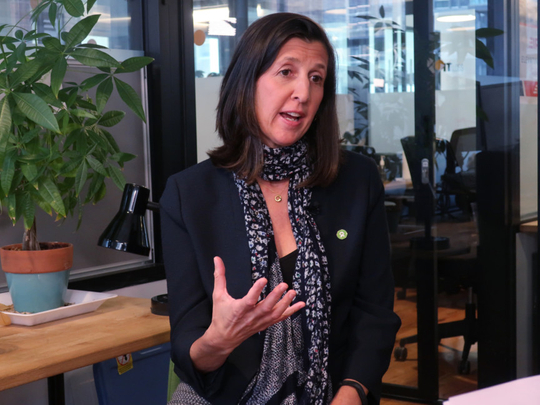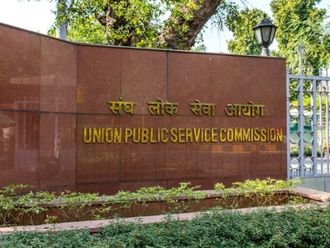
‘This is 16 years of failure by the entire international system of governments, the UN and the aid sector.” These were the words of Stephen Twigg, British member of parliament and the chair of the international development committee, whose devastating report on the international development sector’s #MeToo reckoning was published week before last.
I first wrote about my experiences working for Oxfam and the aid sector in the Guardian in February, when the #AidToo moment kicked off following revelations that workers for the charity had paid women for sex in Haiti.
Since then I have been inundated with emails from people across the world, mostly women, about their own experiences of sexual harassment and abuse.
The vast majority told me they had never reported to their employer what had happened because they felt they wouldn’t be believed, and because they didn’t want their career to be impacted. We now know from the report that those fears were borne out — MPs condemned “a strong tendency for victims and whistleblowers, rather than perpetrators, to end up feeling penalised”.
A small number of women of colour contacted me from a number of European NGO headquarters in Europe, sharing their experiences of racism and sexism.
These women, like me, experienced multiple discriminations based on their gender and their race — intersectional discrimination has not been examined by the committee, and neither has the issue of race.
Alongside the urgent reforms the report demands, we need to start with how we overhaul and modernise a western aid system that is only willing to view people of colour as deserving of our “white saviour” pity, rather than people who are agents of change. There needs to be a greater redistribution of funds, resources and opportunities for civil society actors, women’s rights defenders and development workers from the global south.
We also need to open up an honest debate about the history and legacy of aid as an entity and extension of colonialism. This report has lifted the lid on international charities who for too long have focused on and peddled on their image of do-gooding in the world without wanting to address the dark underbelly that exists within.
In February, Oxfam whistleblower Helen Evans, the charity’s former head of global safeguarding, went public about systematic issues around abuse inside the charity. The defence from Oxfam and other humanitarian actors suggested it was only a few people that had tarnished the sector’s reputation.
The report puts this narrative to bed once and for all.
It outlines how the aid sector has created an environment where the first priority is to protect the names and brands of aid institutions rather than the well-being of those who have bravely gone on record to document alleged abuses — including rape and sexual assault.
It calls out this powerful industry for failing to live up to its moral and professional duty to investigate and act on the allegations put before them. The committee’s call for an independent ombudsman to investigate allegations of sexual abuse is the key. It is absurd that the aid sector believes it can still investigate itself and provide a fair outcome for victims without concerns about funding and public donations clouding any investigation.
I’ve worked in the aid sector for more than 15 years and my work has taken me all over the world. I’ve had the immense privilege of meeting and working with some incredible people. I have also, however, been subjected to some of the worst forms of racism, sexism and sexual harassment that I’ve experienced at any time in my life. What often threw me was the gap between the image of the organisations I was working for and the toxic atmosphere within them. If anyone spoke up about bullying or sexist behaviour, they found themselves alienated. These whistleblowers, many of whom have paid a heavy price in career terms, have been vindicated.
But it’s what happens now that really counts. The cat is out of the bag, and there can be no more “business as usual”.
Earlier this year, along with a group of former aid workers I set up NGO Safe Space, a platform seeking to advocate on behalf of the victims and survivors of NGO abuse.
We are qualified women with decades of experience — yet we are scrambling around for funding to support our work. The international development committee’s report will give victims of abuse more confidence to come forward.
What will the aid sector do to make sure they aren’t failed again?
— Guardian News & Media Ltd
Shaista Aziz is a journalist and former aid worker.








